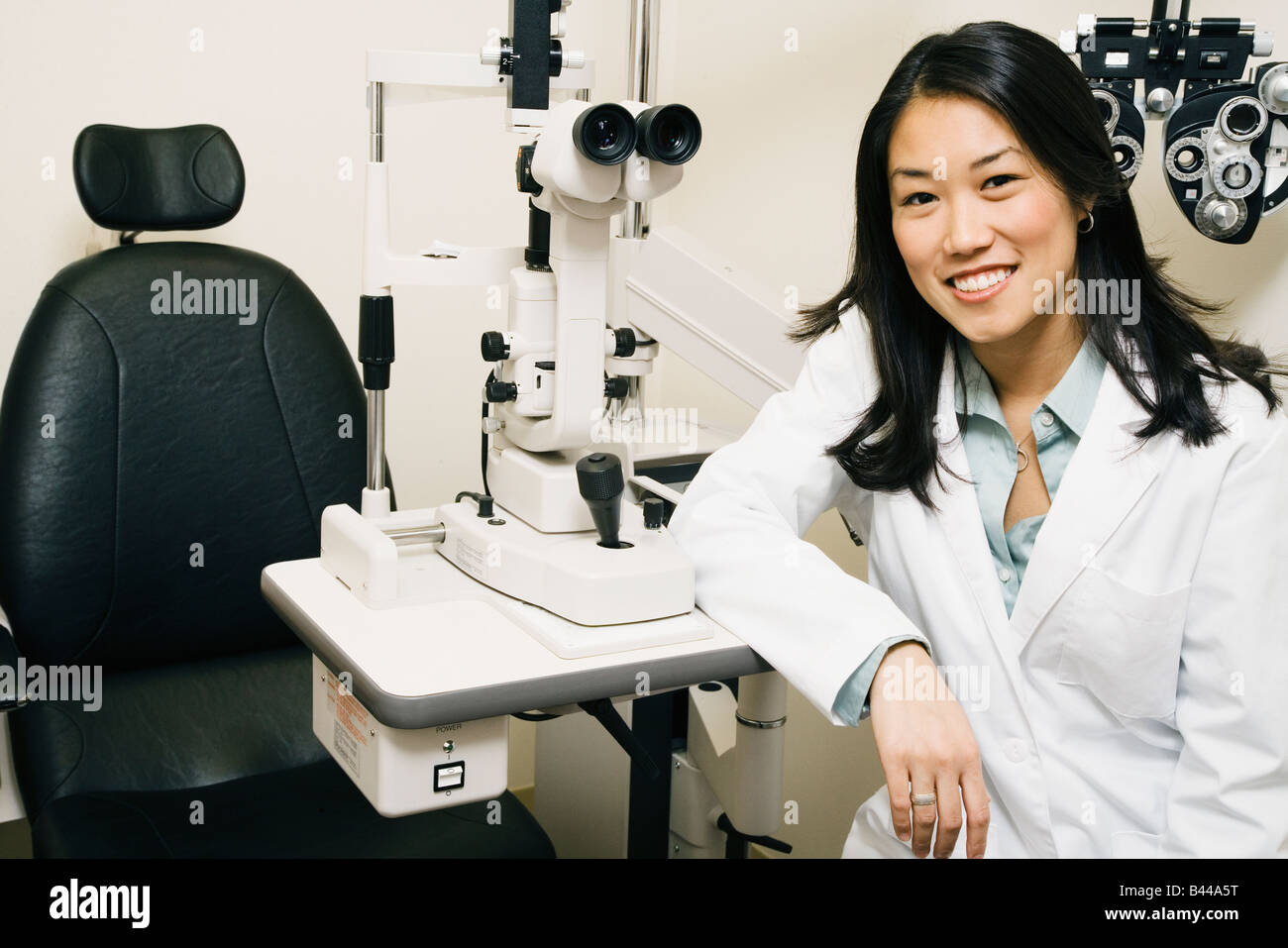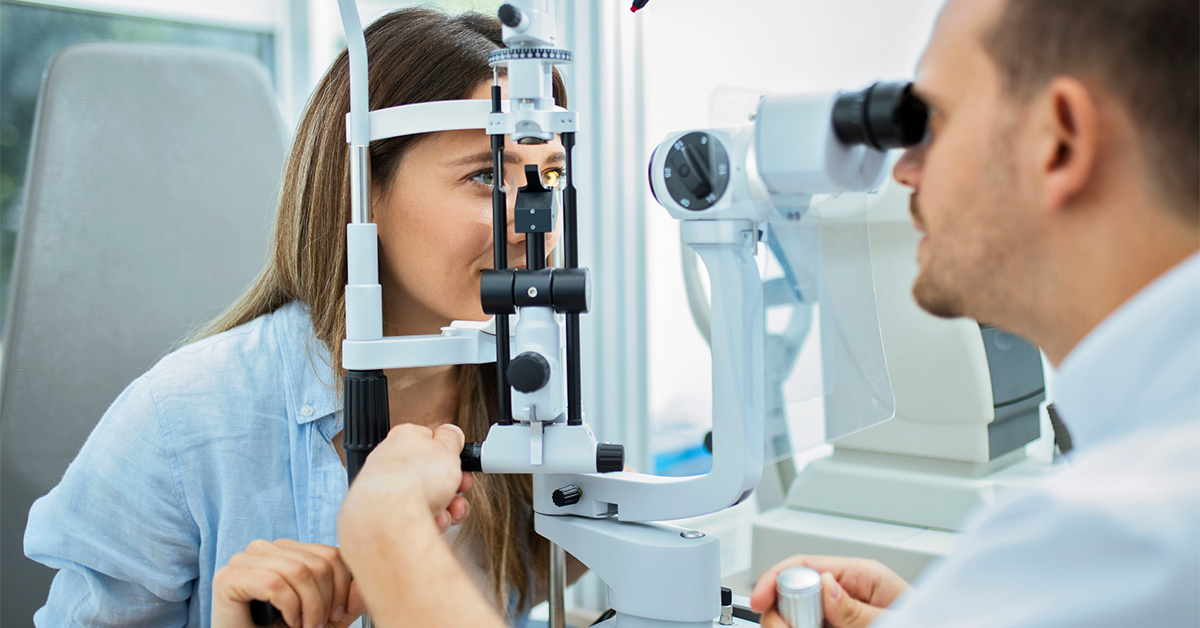Why Selecting an Eye Doctor Optometrist is Important for Your Eyes
Why Selecting an Eye Doctor Optometrist is Important for Your Eyes
Blog Article
Recognizing the Comprehensive Role of an Eye Doctor in Modern Eye Care
In the advancing landscape of healthcare, the scope of an eye doctor's function has actually substantially widened, extending well past the boundaries of traditional vision correction. With improvements in innovation and an enhancing focus on precautionary treatment, eye doctors are important in diagnosing and handling persistent eye problems, while also taking part in early illness discovery. Their experience in advanced diagnostic methods such as optical coherence tomography is important. But how do these responsibilities converge with their function in promoting total eye wellness, and what does this mean for client end results in a collective health care setting?
Expanded Extent of Practice
In the last few years, the duty of eye doctors has advanced substantially, with lots of experts currently welcoming a broadened scope of technique that prolongs beyond typical eye evaluations. This evolution reflects the growing acknowledgment of eye doctors as key doctor in the area of eye care. Their responsibilities currently encompass a vast array of solutions, including suggesting drugs for ocular conditions, taking care of chronic eye illness, and carrying out minor procedures. This change has been driven by advancements in optometric education and learning, enhanced scientific training, and the increasing demand for extensive eye treatment solutions, particularly in underserved locations.
Even more, eye doctors are now more associated with collective care, functioning carefully with ophthalmologists, primary care medical professionals, and various other medical care professionals to guarantee all natural client treatment. This interprofessional cooperation is crucial in taking care of complex situations that require a multidisciplinary method. In addition, optometrists are playing a crucial duty in public health campaigns, such as vision testings and eye health education, targeted at boosting community health and wellness outcomes.
The increased scope of technique for eye doctors not only boosts their ability to provide extensive treatment but also attends to the expanding need for easily accessible and effective eye treatment solutions, contributing to general healthcare enhancements.
Very Early Illness Detection
Early detection of eye conditions is increasingly becoming a prime focus in the expanded role of eye doctors. As key eye treatment providers, eye doctors are uniquely placed to recognize very early indications of ocular conditions such as glaucoma, macular deterioration, diabetic person retinopathy, and cataracts. This essential role is vital, as early medical diagnosis can dramatically boost the management and prognosis of these problems, possibly stopping vision loss and boosting client end results.
Optometrists utilize detailed eye evaluations to discover refined changes in vision and eye wellness. The capability to identify very early signs of systemic wellness problems, such as high blood pressure and diabetes, through eye indications additionally highlights the importance of normal eye examinations.
Furthermore, optometrists play an essential duty in person education and learning, stressing the significance of routine eye examinations as component of overall health care. By cultivating a proactive method to eye care, optometrists add substantially to public wellness, making certain diseases are captured and handled successfully prior to they can advance.
Advanced Diagnostic Strategies
Advanced diagnostic techniques have actually revolutionized the technique of optometry, enabling practitioners to identify and monitor eye illness with unprecedented precision. Technologies such as optical coherence tomography (OCT) give high-resolution, cross-sectional pictures of the retina, promoting very early discovery of conditions like glaucoma and macular deterioration.
Another important improvement is electronic retinal imaging, which catches extensive sights of the retina utilizing high-def cameras. This technology is vital in recognizing changes in retinal structure over time, consequently assisting in the monitoring of conditions like diabetic retinopathy. Aesthetic area screening, improved by computer-aided systems, allows over at this website for exact mapping of a client's area of vision, crucial in detecting and tracking glaucoma development.
Corneal topography, one more remarkable diagnostic device, creates topographic maps of the cornea's surface. This is particularly advantageous in fitting get in touch with lenses and intending refractive surgery. These sophisticated diagnostic techniques collectively make it possible for optometrists to provide proactive, targeted care, guaranteeing better individual outcomes and reinforcing their essential duty in eye health and wellness administration.
Taking Care Of Persistent Eye Conditions
Handling chronic eye problems is a foundation of optometric care that needs a comprehensive understanding of different eye conditions and their lasting implications. Optometrists play an essential function in handling, diagnosing, and tracking problems such as glaucoma, diabetic retinopathy, and age-related macular deterioration. These problems, if left unattended, can lead to significant visual impairment or blindness, highlighting the vital significance of continuous care and administration.
Optometrists use an array of analysis devices, consisting of optical coherence tomography (OCT), visual area testing, and fundus photography, to examine the development of these chronic problems. By carefully keeping track of modifications in ocular wellness, optometrists can readjust therapy strategies to alleviate illness progression. This might entail suggesting drugs, recommending way of life modifications, or collaborating with ophthalmologists for surgical treatments when needed.

Duty in Preventive Care
Precautionary care is a fundamental facet of optometry that concentrates on preserving eye health and wellness and avoiding the onset of ocular diseases. Optometrists play a crucial duty in very early detection and prevention, utilizing routine eye examinations to recognize danger variables and refined modifications in ocular wellness. Eye Doctor. These examinations are not simply about vision adjustment yet include a comprehensive navigate here evaluation of eye functions and frameworks, allowing the recognition of conditions such as glaucoma, cataracts, and macular degeneration at a beginning
Along with diagnostics, eye doctors enlighten patients on way of living choices that advertise eye health, such as proper nourishment, UV defense, and the significance of routine eye exams. They suggest on the right use digital tools to stop digital eye strain, an expanding see this worry in the electronic age. Eye doctors likewise provide support on safety glasses for recreational and work-related activities, alleviating the threat of injury.
Precautionary eye treatment extends to systemic health and wellness problems that manifest in the eyes, such as diabetes and high blood pressure. By collaborating with other health care specialists, eye doctors add to all natural person care, highlighting the interconnectedness of systemic and eye health. This positive approach is necessary in securing visual skill and overall well-being.
Final Thought
Optometrists now occupy a critical duty in modern-day eye care, characterized by a broadened range that consists of diagnosing and handling persistent eye conditions, prescribing drugs, and performing small surgeries (Eye Doctor). Their competence in very early condition detection is enhanced by innovative diagnostic techniques such as optical coherence tomography and digital retinal imaging. By highlighting precautionary treatment and patient education and learning, optometrists contribute significantly to total eye wellness, collaborating with other health care specialists to make certain reliable and detailed client end results

In addition to diagnostics, optometrists inform individuals on way of living choices that promote eye health and wellness, such as proper nutrition, UV protection, and the importance of regular eye examinations.Precautionary eye care prolongs to systemic wellness concerns that materialize in the eyes, such as diabetic issues and high blood pressure.Optometrists currently occupy a critical duty in modern-day eye care, characterized by an expanded range that includes diagnosing and handling chronic eye problems, suggesting medications, and carrying out minor medical treatments.
Report this page